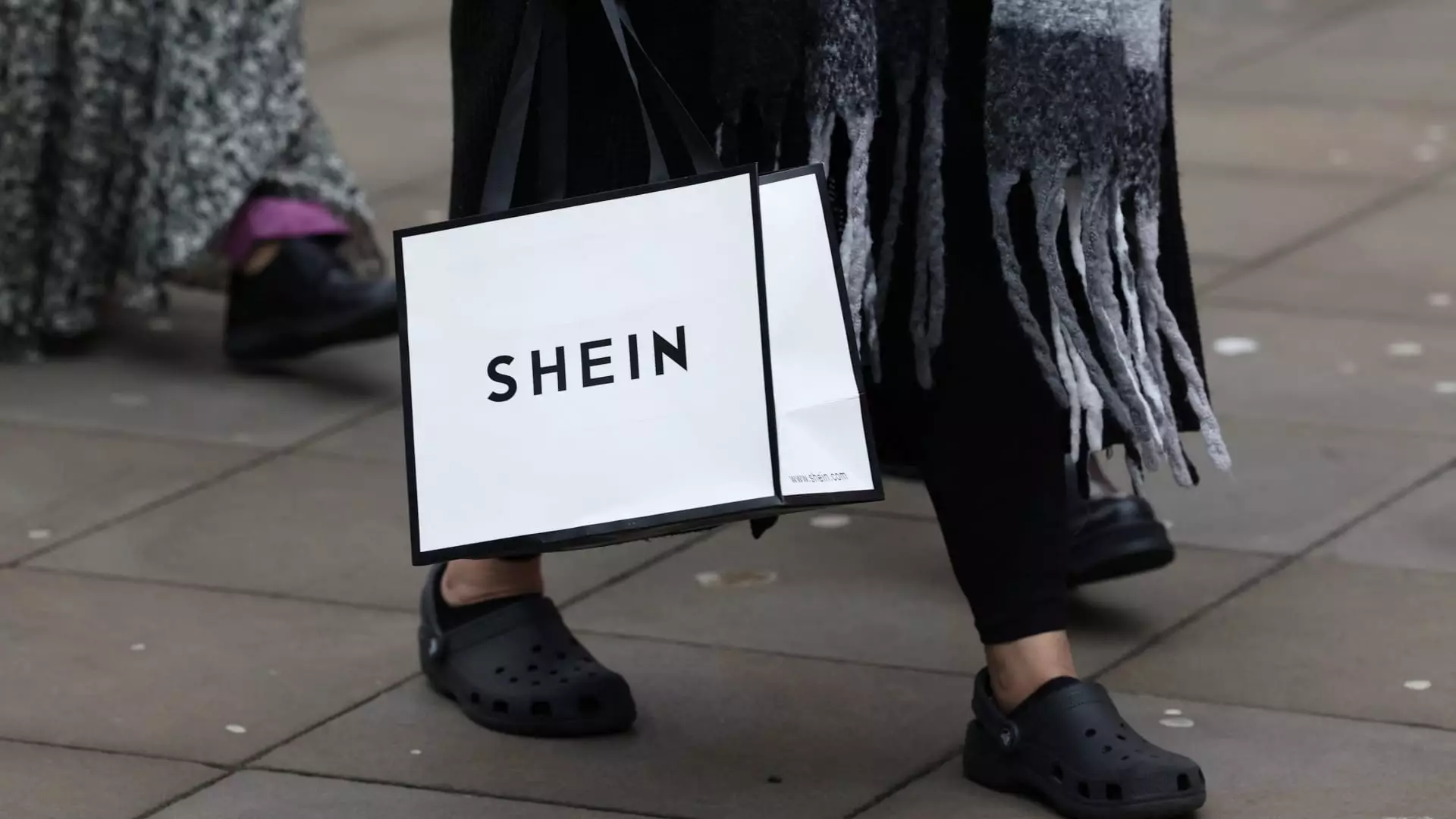In recent months, Shein—known for its rapid-fire fashion offerings—has ramped up efforts to reshape its public persona, particularly as it eyes a potential public listing in London. This strategic push comes on the heels of significant scrutiny from lawmakers regarding product safety and labor practices, which have cast shadows over the retailer’s business model. Through a series of announcements, Shein is attempting to mitigate concerns and project an image of compliance and responsibility.
A pressing issue for Shein has been its approach to product safety. Following a product recall in the U.S.—its first such action since 2021—the company issued a press release detailing its ongoing commitment to the safety of the products offered on its platform. Highlighting that over two million product safety tests had been conducted in the previous year, Shein enlisted reputable labs like Bureau Veritas and Intertek to lend credibility to their safety claims. The company’s assertion that vendors must supply extensive documentation across a range of categories, from electronics to baby products, signals a shift toward greater accountability within its supply chain.
However, skepticism remains. Safety testing is standard in retail, but Shein’s decision to extend this practice to third-party sellers is somewhat unexpected. This proactive stance could potentially operate as a double-edged sword; while it illustrates Shein’s determination to maintain higher safety standards, it also raises questions about why such measures were previously deemed unnecessary. A spokesperson noted that random safety tests were conducted even for third-party products before listing, a practice not typical in e-commerce and indicative of Shein’s efforts to differentiate itself in a market where compliance often takes a backseat.
Strategic Initiatives and Nonprofit Foundations
In its recent communication, Shein also unveiled plans for a new nonprofit foundation as part of its sustainability initiatives. In light of a growing global movement toward eco-conscious consumption, this move may be interpreted as an attempt to align its corporate identity with consumer values increasingly centered on environmental responsibility. This attempt to advocate for sustainability stands in stark contrast to previous criticisms of the fast fashion industry, where rapid turnover of inexpensive, disposable clothing often undermines ethical consumption practices.
Nevertheless, the sincerity of Shein’s sustainability commitments is questioned by observers aware of past controversies surrounding the brand. Given that the fast fashion model is fundamentally at odds with sustainable practices—what with its focus on mass production and rapid consumption—the brand’s new initiatives may come off as mere performative actions rather than deep-rooted changes in corporate policy.
Facing Legislative Scrutiny
The backdrop to Shein’s image rebuilding efforts includes notable legislative scrutiny, especially in the U.K. Lawmakers have voiced serious concerns regarding the company’s labor practices, particularly about claims of forced labor linked to cotton sourced from China’s Xinjiang region, notorious for its severe human rights abuses. Shein’s general counsel in Europe, Yinan Zhu, faced challenging questions during a recent parliamentary hearing but often evaded queries directly addressing these allegations. His refusal to definitively state the company’s sourcing practices regarding Xinjiang cotton has only intensified skepticism surrounding Shein’s compliance with ethical labor standards.
This lack of transparency is alarming for those advocating for ethical consumer practices, as it suggests a reluctance on Shein’s part to engage in meaningful dialogue about its sourcing practices. The chair of the parliamentary committee expressed frustration, stating that Zhu’s ambiguous responses eroded lawmakers’ confidence in the integrity of Shein’s supply chain. This tone of contempt—perceived during the hearing—undermines Shein’s public relations efforts and further alienates a concerned consumer base.
As Shein approaches the prospect of going public, it faces a challenging road ahead. Its strategies to enhance product safety and promote sustainability signal a recognition of the need for a more responsible corporate presence. Nevertheless, the efficacy of these initiatives hinges on genuine commitment rather than obfuscation of practices that contradict claims of responsibility.
For Shein to effectively transition into a publicly traded entity, it must engage meaningfully with stakeholders and the broader public, addressing concerns regarding both product safety and labor practices. Transparency and accountability will be vital. Aspirations for an IPO in the U.K. can only be realized with an unwavering commitment to ethical standards and an authentic commitment to rectifying past shortcomings. In a complex landscape where consumer trust is invaluable, Shein must learn that real change emanates not from surface-level initiatives but from deep-rooted organizational reform.

